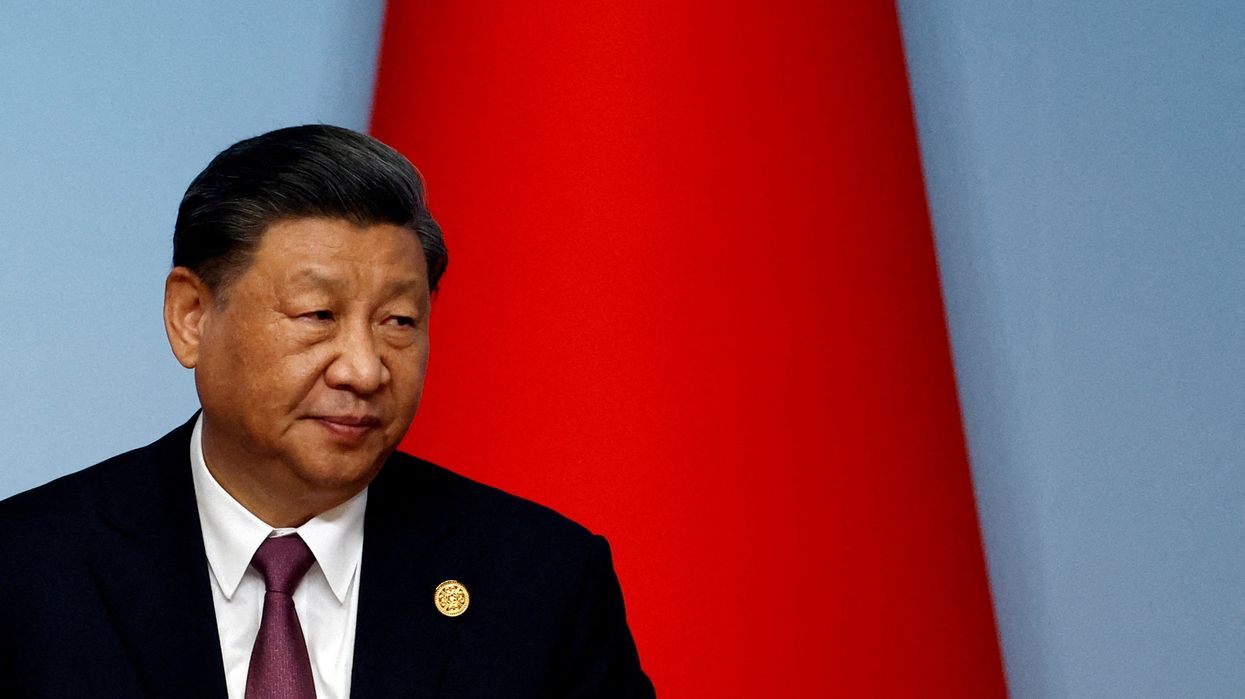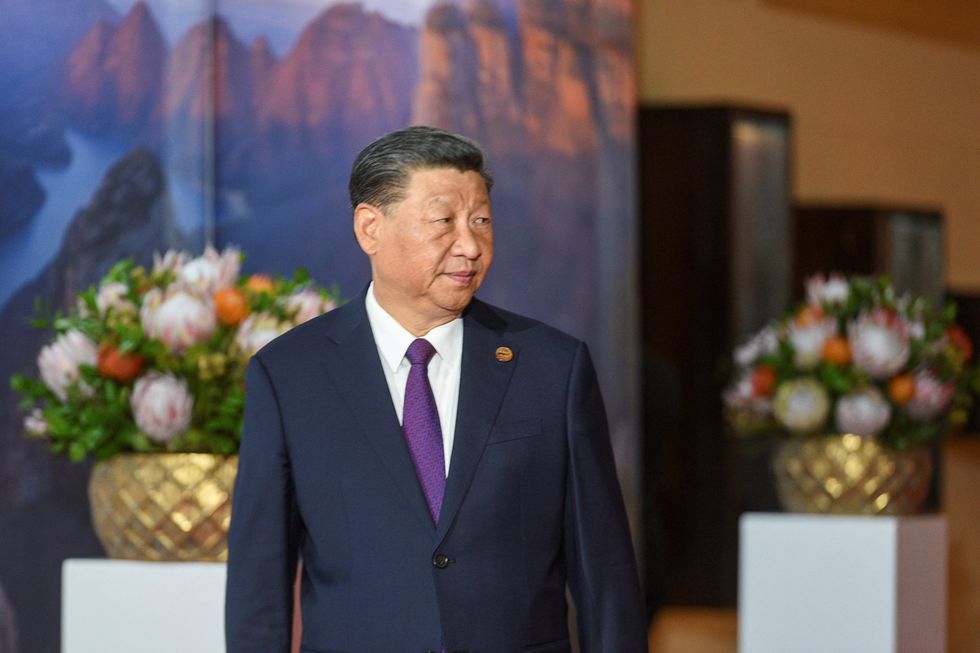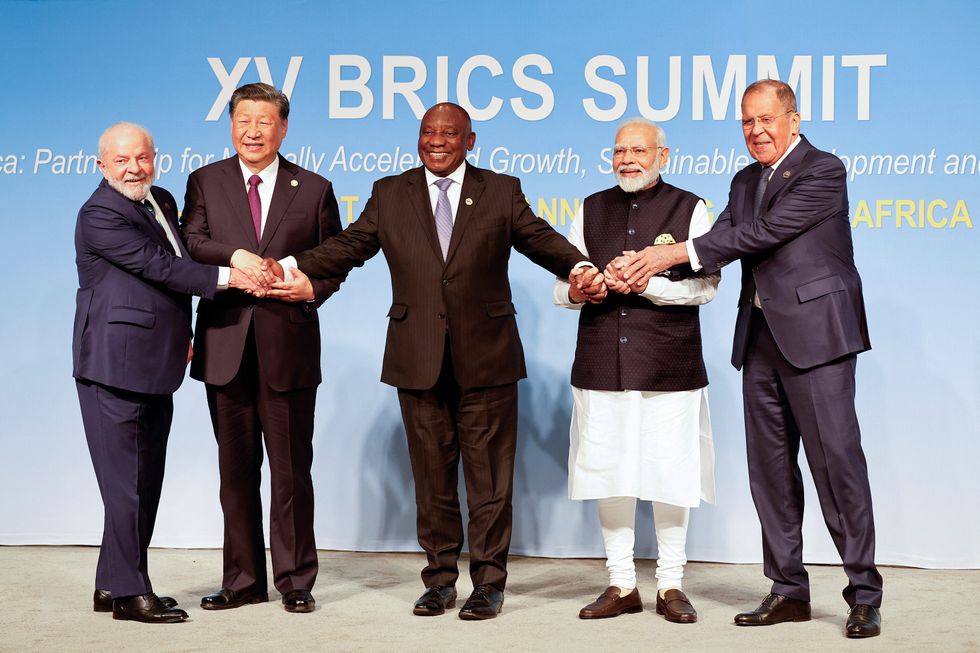China's economy slumps AGAIN with warning 'Beijing is now more dangerous'

Xi Jinping is facing many economic challenges
An expert said economic weakness could turn Beijing towards stronger nationalism
Don't Miss
Most Read
Trending on GB News
China’s economy has declined after exports have dropped for the fourth month in a row, with experts warning economic weakness could make Beijing’s leaders more dangerous.
The country is facing many challenges post-pandemic, including a housing crisis and consumers spending less money.
The global demand for products made in China is also declining amidst an ongoing trade dispute with the US.
Michael Schuman, an expert on Chinese policy and modern history, said that economic weakness could make Beijing dangerous as they could turn to nationalism in the face of a crumbling economy.

China is also facing a housing market crisis, as many of its largest developers are dealing with financial difficulties
Reuters
“Economic weakness could make China’s leaders all the more dangerous—more prone to champion nationalist causes and stumble into foreign adventures, such as a military grab for Taiwan.
“One can only hope that Xi will look to history and realise that a nation’s power can be projected only as far as its economic strength allows,” he said.
Exports fell 8.8 per cent compared to 2022, official figures revealed.
Meanwhile imports have also fallen in recent years. In 2017/2018 the share of Chinese imported goods in the US was 21.8 per cent.
Data revealed that this year this had fallen to 14.8 per cent.
China is also facing a housing market crisis, as many of its largest developers are dealing with financial hardships.
It is estimated that there are between 23 to 26 million unsold apartments in China, according to research from think tank Rhodium group.
In August one of China’s biggest property developers, Country Garden, reported a £5.2billion loss for the first six months of 2023.
Other developers across the country have defaulted on their debts and have left building projects unfinished across China.
Schuman said that the world was aware of China’s current economic troubles.
He mentioned the China model – a combination of liberalisation and state control – which he believes is “fundamentally flawed”.
Yukon Huang, an expert on China’s economy, described the China model as “the right to operate in certain areas or activities is essentially reserved for the state, but the state can delegate that responsibility to others – including the private sector”.
CHINA LATEST:

Brazil's President Luiz Inacio Lula da Silva, China's President Xi Jinping, South Africa's President Cyril Ramaphosa, India's Prime Minister Narendra Modi and Russia's Foreign Minister Sergei Lavrov pose during a BRICS summit in Johannesburg, South Africa
Reuters
Schuman said: “Economists and even Chinese policy makers have warned for years that the China model was fundamentally flawed and would inevitably break down. But Xi was too consumed with shoring up his own power to undertake the necessary reforms to fix it. Now the problems run so deep, and the repairs would be so costly, that the time for a turnaround may have passed.”
Writing in The Atlantic, Schuman said that China’s constant borrowing and investing in projects has resulted in heavy debt.
“A decade ago, China’s total debt was about twice the size of the country’s economy; now it’s three times as large,” he said.
A collection of developing countries including Russia, Brazil and China have formed joined together as Brics.
They account for 42 per cent of the world’s population.
Brics member leaders met at a summit last month.
A Chinese Communist news organisation said that “as more like-minded developing countries join BRICS, a stronger collective force will form, emitting a more resounding ‘BRICS voice,’ driving the world toward good governance.”
Another Chinese economy expert, Alicia Garcia-Herrero theorised that China was still unnerving in their desire to dominate the world, despite their failing economy.
“I think this is the plan: ‘My economy might not be bigger but my bloc will be bigger.’”








